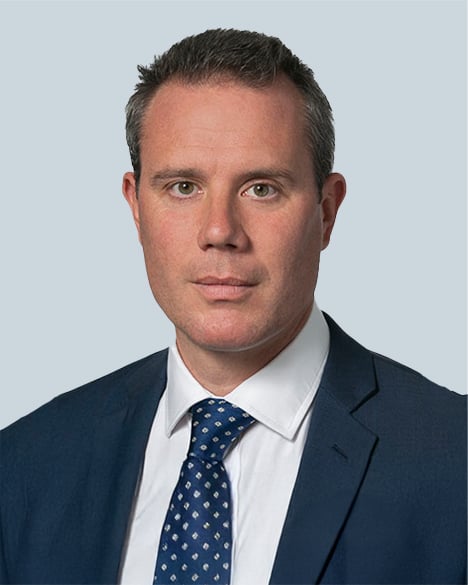As the bleak outlook for domestic growth drives many Western companies to consider expanding overseas into unfamiliar markets, sub-Saharan Africa is an increasingly attractive prospect.
Economic performance over the past decade has outstripped any previous period, and current forecasts are that the regional African market will grow at about 5.5% this year. Armed conflict is significantly reduced, providing the stability required for economic growth and development. Many state-owned enterprises have been privatized, and legal and regulatory systems are being strengthened. Inflation is being brought under control, and foreign debt and budget deficits are being reduced. Across the continent, African economies have opened up to international trade.
But while in recent years the African investment narrative has been dominated by success in the natural resources and telecoms sectors, today it is the infrastructure sector—which has been estimated to require investments by non-government entities of US $100 billion each year until 2020—that is most likely to rouse interest and generate returns.
Current infrastructure provision varies among all African countries, but all (except South Africa) fall short of the global average. The deficits are far from uniform, however. In Nigeria, for example, Internet usage is at 90% of global average, while Mozambique is at a mere 12%, a disparity partly explained by the different levels of access to undersea fibre optic cables on the east/west coasts. In contrast, Gabon has a comparatively high per capita spending on health compared to Nigeria, and indeed to China and India, explained partly by its high oil revenues and small population.
By far the greatest infrastructure challenge facing Africa is reliable power provision. Only 16% of the sub-Saharan African population has access to electricity (compared to 50% in Asia and 80% in Latin America). Moreover, some 30 African countries face regular power shortages, forcing many to pay high premiums for emergency power. In some countries, this is becoming a political issue. It was a recurring theme in the 2011 elections in Nigeria, and for many Nigerians it will be an issue as they consider whether to re-elect President Goodluck Jonathan in 2015.
By far the greatest infrastructure challenge facing Africa is reliable power provision. Only 16% of the sub-Saharan African population has access to electricity (compared to 50% in Asia and 80% in Latin America).
Perhaps the second biggest infrastructure challenge is inadequate transport links. Defunct or poorly maintained rail networks put an added burden on roads, which are frequently starved of investment, in poor condition, and organized more in accordance with the historical imperatives of colonial rule than with today’s regional realities. As a result, transport costs are the highest in the world—equivalent to 13% of the cost of trade in Africa, compared to 6% worldwide—with an accordingly negative effect on competitiveness. And the transport shortfall is not merely an academic debate: it has a very real impact. In February this year, when global mining major Rio Tinto was forced to book a US $14 billion impairment and chief executive Tom Albanese chose to step down, a key contributing factor was Rio’s losing struggle with rail infrastructure in Mozambique. Rio had acquired substantial coal assets in the country but could find no viable export route through which to monetize the reserves.
Beyond power and transport, other sectors ripe for attention include healthcare, Internet provision, and water/sanitation. The combination of rapidly growing African economies, the commodities boom, increased appetite for private sector participation, a variety of financing models, and a wide range of opportunities across the infrastructure landscape make the investment thesis in this sector particularly compelling.
Preparation Is Critical
Businesses moving into Africa, however, encounter a set of risks they may not be familiar with from previous transactions. The risk is not confined to the failure of the specific deal in question; the wider fallout may also extend to lasting damage to the investor’s reputation at home. Reasons for failure are many but some—exposure to fraud and corruption, undisclosed interests, personality clashes, and links to organized crime—can be uncovered before committing to a transaction.
The political environment, too, requires close attention and specialist assessment. African democratization is very real, with the one-party state increasingly the exception rather than the rule. Most African countries have transitioned, or are transitioning, toward some form of participatory democracy. But this has not necessarily led to a more stable investment environment. As Cote d’Ivoire, Kenya, and others have shown, election results are frequently contested, overturned, or accompanied by outbreaks of violence. Governments can be fragile and brief in duration. Institutions can matter less than individuals.
So, while there is a potential tremendous upside to doing business in Africa, investors must not be distracted from the challenges and restraints. Investments in infrastructure are particularly vulnerable because of the scale and longevity of the financial commitments, and the need to interface closely with government. Moreover, many hidden risks are not always identified by traditional legal and financial due diligence. Kroll’s recent work in Africa, including infrastructure-related projects, has seen many categories of fraud ranging from regulatory and compliance breaches, through to management conflicts of interest and vendor, supplier, or procurement fraud.
Dedicated profiling should be carried out on the commercial track record and industry reputation of potential partners and acquisition targets in order to determine whether a particular relationship presents inherent or specific vulnerabilities. Additionally, it is only by fully understanding where power lies, how it is exercised, and who might bring influence to bear on a partner or acquisition target that investors can accurately gauge this risk, increase the chance of controlling it, and create a stronger framework for realizing a return on their investment.
Stay Ahead with Kroll
Enterprise Security Risk Management
Kroll’s Enterprise Security Risk Management practice provides expert guidance and advisory services to our global clientele as they navigate the most challenging and emerging security and threat-related issues.
